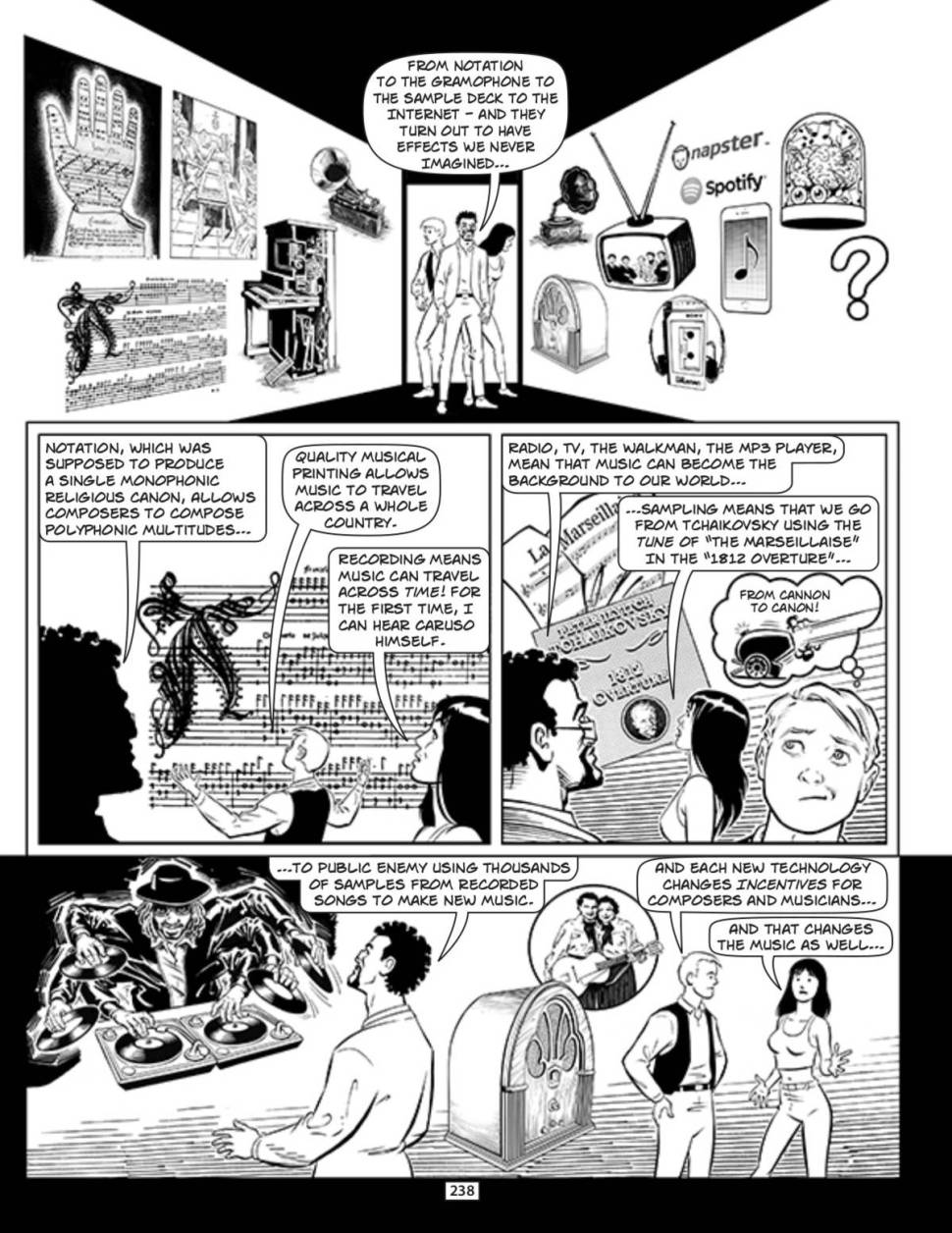Jennifer Jenkins and James Boyle, Theft's authors are a pair of white-hot, brilliant, activist law-professors whose wit, passion, and compassion shine through on every page. If you're a regular Boing Boing reader, you'll know their work: Jenkins and Boyle produce the essential Public Domain Day roundups of the materials that we should be getting free access to in the USA, save for the nonsensical retroactive extension of copyright in 1998; they co-produced the free, open intellectual property casebook, which saves law students (and the curious) $160 by replacing a less-good, proprietary version. On his own, Boyle coined the term "Information Ecology" and wrote "The Public Domain," an essential, witty, important defense of the commons from which we all draw.

Theft traces millennia of musical history, from Plato's injunction against mixing musical styles to the outrage provoked by the troubadours who appropriated sacred music and turned it into bawdy songs about wanting to have sex with hot teenagers (a trick Ray Charles repeated hundreds of years later!); from the racist outrage over rock and roll's challenge to white supremacy to the fights over sampling and the exploitation of African-American musicians who were ripped off 40 years ago versus the interests of their musical progeny whose sample-based music has been distorted and even outlawed by the same musical corporations that screwed the R&B artists, in the name of defending those artists (!).
Jenkins and Boyle are two of the staunchest defenders of fair use and remixing — their first comic, Bound by Law, was a kind of Understanding Comics for the legalities of fair use — and it shows: Theft is as laden with visual, textual and musical references as a Dizzy Gillespie solo, an early Public Enemy wall-of-sound, an illegal Girl Talk mashup.
But for all that, some of the most powerful scenes are in the form of straight-up superhero fights between two aspects of one of the comic's protagonist, a musician who is conflicted about the urge to protect his own creations and the need to work with, reference and incorporate the music that has come before him. In these sequences, he splits into two leotard-clad, muscle-bound superhero aspects and stages blazing, literal fights with himself, giving both sides of the argument a fair shake:


As you've probably anticipated, the entire book is available as a CC-licensed download, so you've got no excuse not to start reading it today. It will make you a lot smarter about music, where it comes from, how we regulate it, and the tensions that are embodied in the copyright fight we're having today — and the way that the same war has been waged in the years gone by.
The book ends with a sprightly summary, and thanks to the CC-licensed download, it was easy for me to extract this and append it below. Consider it a taste of what's in store.
Theft: A History of Music [Jennifer Jenkins and James Boyle/print edition]
Theft: A History of Music [Jennifer Jenkins and James Boyle/free Creative Commons download]












